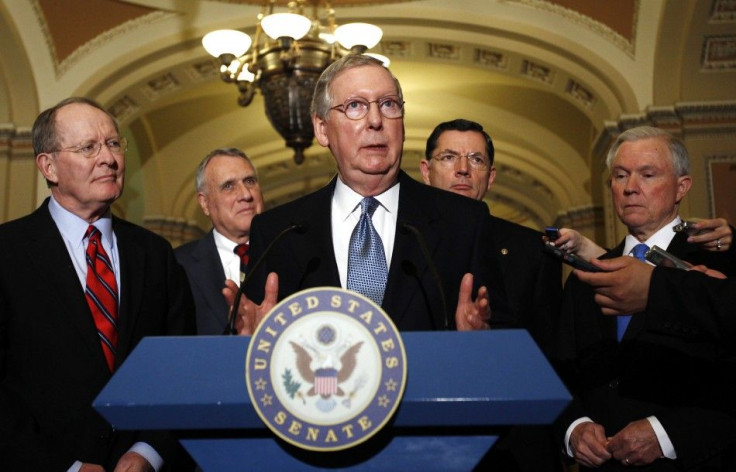GOP Debt Talks Strategy: 'Refuse to Help Obama's Re-Election'

Analysis
Top Senate Republican Mitch McConnell of Kentucky, assailed by his own party for a debt deal proposal that would surrender Congressional authority to President Barack Obama, laid out his brazenly political strategy for endorsing the move: shift the blame.
McConnell has floated a plan that would allow Obama to raise the debt ceiling unilateraly, rather than rely on an elusive deficit reduction compromise. He defended the idea on Laura Ingraham's program, saying that the move would avoid the fallout from a default and allow Republicans to eschew co-ownership of a bad economy.
My first choice was to do something important for the country, McConnell said. But my second obligation is to my party and my conference to prevent them from being sucked into a horrible position politically that would allow the president, probably, to get reelected because we didn't handle this difficult situation correctly.
The explanation amounts to an admission that Republicans are increasingly unlikely to get a sought-after deal that would include spending cuts but no revenue increases. Republicans have been intractable in their opposition to any new source of revenue, rejecting a larger-than-expected deal offered by Obama that would have included Republican priorities like cuts to Social Security as well as fresh sources of tax revenue. By putting the onus on Obama to raise the ceiling without Congressional consent, McConnell would deflect criticism that Republican intransigence scuttled a deficit deal.
McConnell has a penchant for such baldly political statements -- in October 2010, when asked about Republican priorities, he said that The single most important thing we want to achieve is for President Obama to be a one-term president.
© Copyright IBTimes 2024. All rights reserved.





















